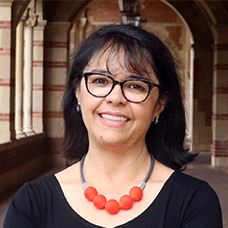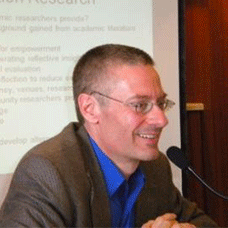In the first week of his administration in January 2017, President Trump signed an Executive Order to reinstitute the Secure Communities program. This federal database matching program was created in 2008 to identify undocumented immigrants who come in contact with law enforcement. Many local jurisdictions refused to participate. In response, the Trump Administration attempted to withhold federal funds to force compliance. Those lawsuits were still working their way to the Supreme Court when President Biden took office and discontinued the program.
Although President Biden has discontinued this specific federal policy, local and state law officials continue to be involved in immigration enforcement, creating a climate of fear in Latina/o communities. The negative effects of these policies are widespread and deep, affecting individuals, communities, and contacts between immigrants and broader social institutions. Secure Communities and similar programs undermine the social fabric of Latino communities, affecting both undocumented and documented individuals, given the strong association between being Latino/Hispanic and being undocumented.
Our study documents the effects of the Secure Communities enforcement program on Latina immigrants’ social isolation resulting from local government involvement in Secure Communities. Through a random sample survey conducted in 2012 of 2004 Latinas/os in four large cities (Los Angeles, Phoenix, Chicago, and Houston), we examined the negative effects of enforcement on Latina immigrants’ social isolation. Los Angeles and Chicago are self-proclaimed sanctuary cities, while Houston and Phoenix have long histories of collaboration between local law enforcement and federal immigration authorities. In fact, Phoenix has the most draconian policies targeting immigrants in the country.
Most respondents reported heightened social isolation due to increasing involvement of local officers in immigration policing. Thirty-nine percent of respondents were afraid to leave the house out of fear of the local police. The effects of this isolation are especially important for social networks, which are a vital source of material, financial, and emotional support for immigrants. Immigrant women are builders of community, connecting their families to the communities and institutions vital to integration, such as schools, employers, and health care. Our study shows, that both women and men are equally likely to feel socially isolated. And women who once served as community anchors retreated to avoid contact with police. This finding corroborates a large body of recent work showing that Latina/Latino immigrants respond to local immigration enforcement by withdrawing from their communities.
For Latina immigrants in particular, social isolation can lead to decreased help-seeking behaviors.
Whereas previous studies found that having children increased immigrant women’s social interaction and connections to institutions, ours found the opposite. Having children led to more social isolation, suggesting that women with children were even more likely to fear immigration enforcement and thus increased their social isolation. Further analysis showed that of the three social isolation variables, having children was most significant in fear of leaving the house. This increase in social isolation is especially troubling as it has critical socio-economic impacts and is linked to poor health outcomes and reduced access to health care.
For Latina immigrants in particular, social isolation can lead to decreased help-seeking behaviors. This is particularly concerning because social isolation itself, accompanied by heightened levels of fear, can make Latina immigrants ill. Furthermore, social isolation among Latina immigrants can lead distrust of social institutions, decreasing service utilization, including calling the police, thus increasing impunity for domestic violence and putting women at increased risk.
The climate of fear that enforcement programs such as Secure Communities (and related Immigration and Customs Enforcement (ICE) programs ) affects the lives of Latina/Latino immigrants and their communities profoundly. And it is altering long-standing social dynamics, especially for Latinas who may avoid contacting institutions to address their family’s needs, placing their own health and that of their families at risk.
Photo via Getty Images















